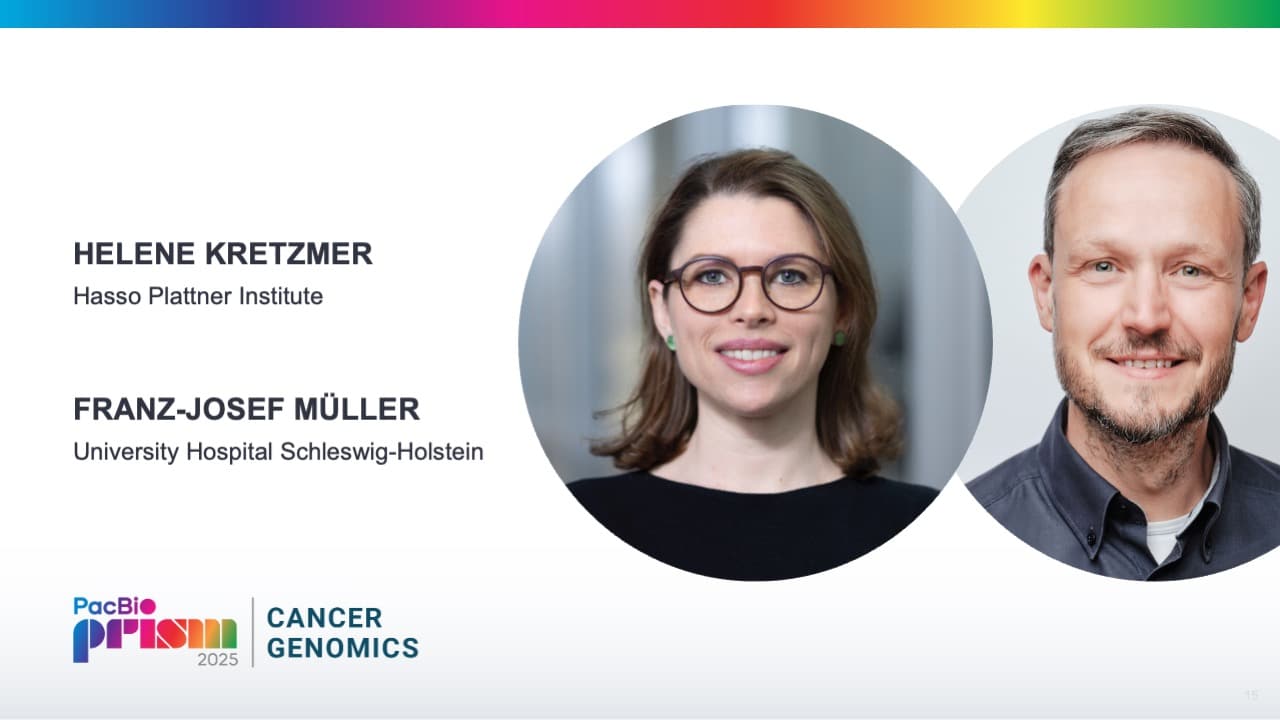
Highlight
Celebrating 25 years of innovation
Join PacBio co-founder Jonas Korlach as he reflects on 25 years of scientific innovation—tracing the evolution of long-read sequencing and its transformative impact across genomics.
Human genomics

Highlight
Join PacBio co-founder Jonas Korlach as he reflects on 25 years of scientific innovation—tracing the evolution of long-read sequencing and its transformative impact across genomics.

Franz-Josef Müller, Professor for Neuropsychiatry, Zentrumf für Integrative Psychiatrie, University Hospital Schleswig-Holstein and Helene Kretzmer, Associate Professor, Computational Genomics, Hasso Plattner Institut
Explore the 2024 video archive to catch up on key sessions from last year’s event.
Thank you to a select few of our Compatible Partners who sponsored PRISM 2025. We work with a wide range of industry-leading organizations to ensure the compatibility of products optimized for use in PacBio workflows. Our partners have been qualified by PacBio scientists to provide seamless integration and support for customers who are just starting out with PacBio sequencing or expanding their current capabilities. Learn more here.

Be the first to know about PRISM 2026. Sign up to receive updates for next year’s event. We hope to see you there!
If you have a question, need to check the status of an order, or are interested in purchasing an instrument, we're here to help.